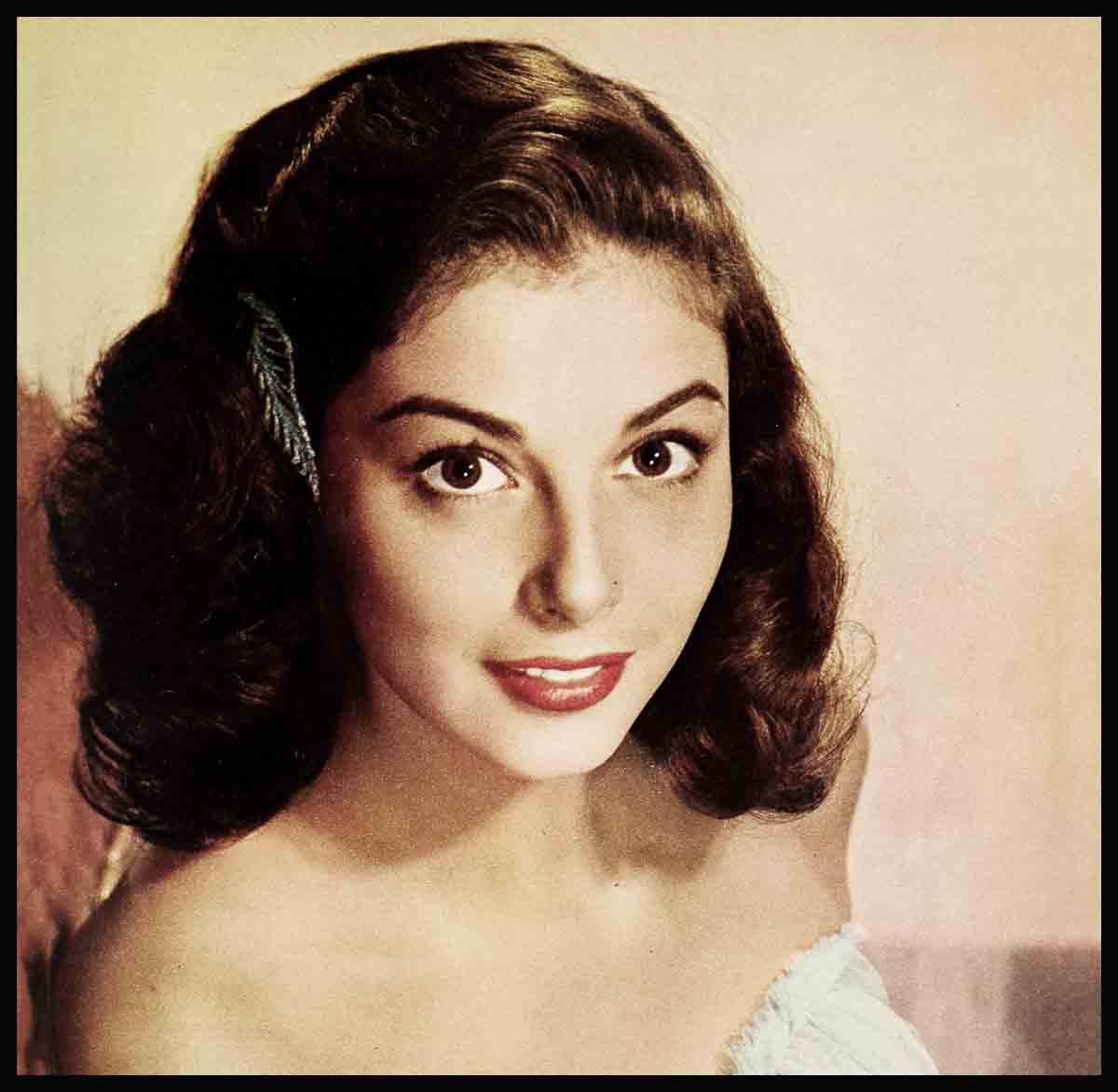
“They’re Not All Alike!”—Pier Angeli
Pier Angeli, only twenty-one, expresses the worldliness and sophistication of a much more mature woman when she says, in contradiction to the cliche—“Men are not all alike.” For Pier, who has worked with a succession of top leading men, some of whom she has come to know intimately, has had a unique opportunity to observe and judge them. Her own life, personally and professionally, has taught her that each man is decidedly different from all the others—not only in personality, but even more so in the influence they’ve had on her.
Just what did each of these men mean to her?
First there was Gino Laurini, who played her sixteen-year-old lover in “Tomorrow Is Too Late,” the film that won Pier recognition, stardom, and a chance to get to the United States.
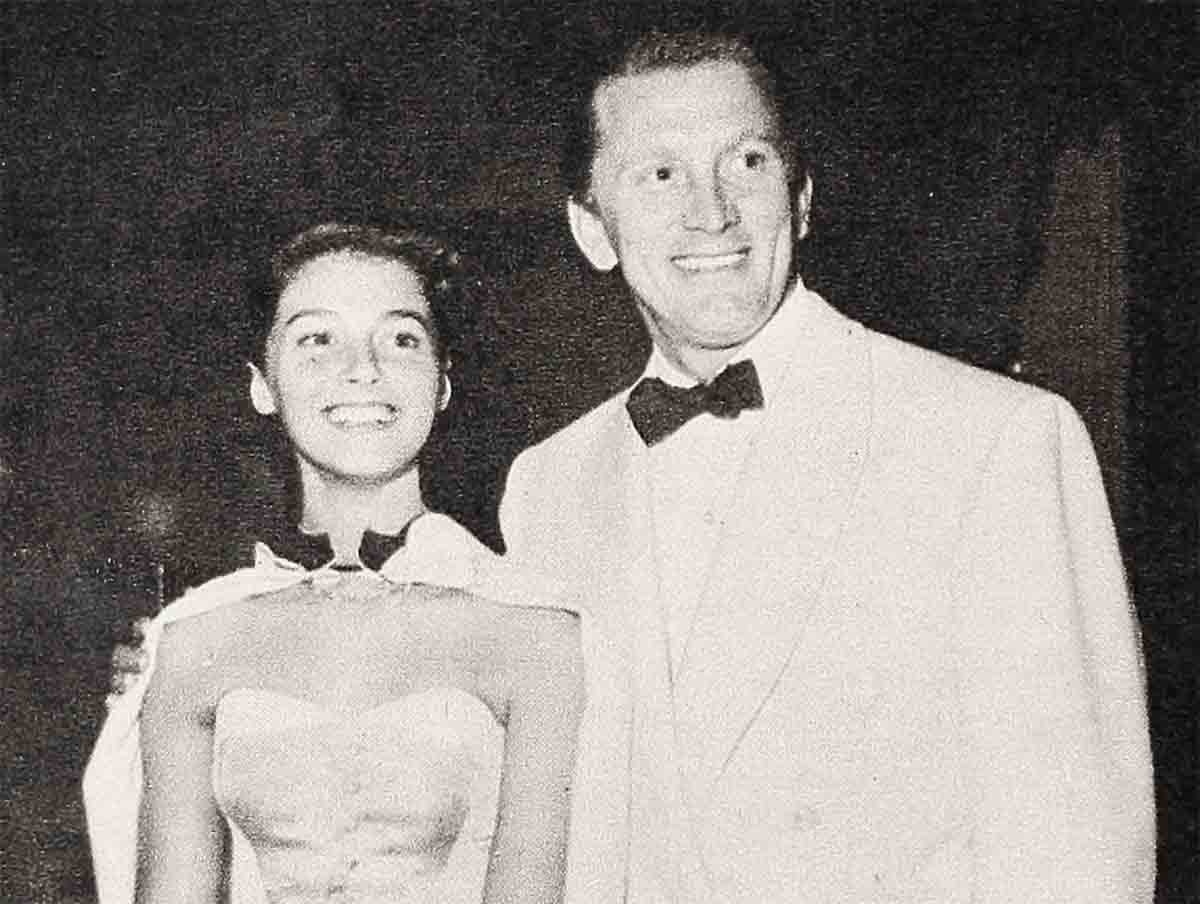
Pier was eighteen when she made the film, and by American standards very young and immature. Sixteen-year-old Gino, although very pleasant and cooperative as a person, was too inexperienced to help Pier with her acting. Both leaned heavily for advice on the director, Leornide Moguy.
Pier was still very emotional then. Her first scene in the picture took place in a church, where Gino was supposed to kiss her. But in spite of Leornide Moguy’s fatherly helpfulness, Pier couldn’t get herself to do the scene. As Mr. Moguy grew more insistent, she began to cry. In desperation he asked the electricians to soften the bright lights to help Pier overcome her shyness. Somehow he coaxed her into the scene, but from then on he dreaded the love scenes as much as his young protege did. It was good for Pier that Gino was as immature as she. He understood her hesitancy, and did not expect her to be worldly-wise.
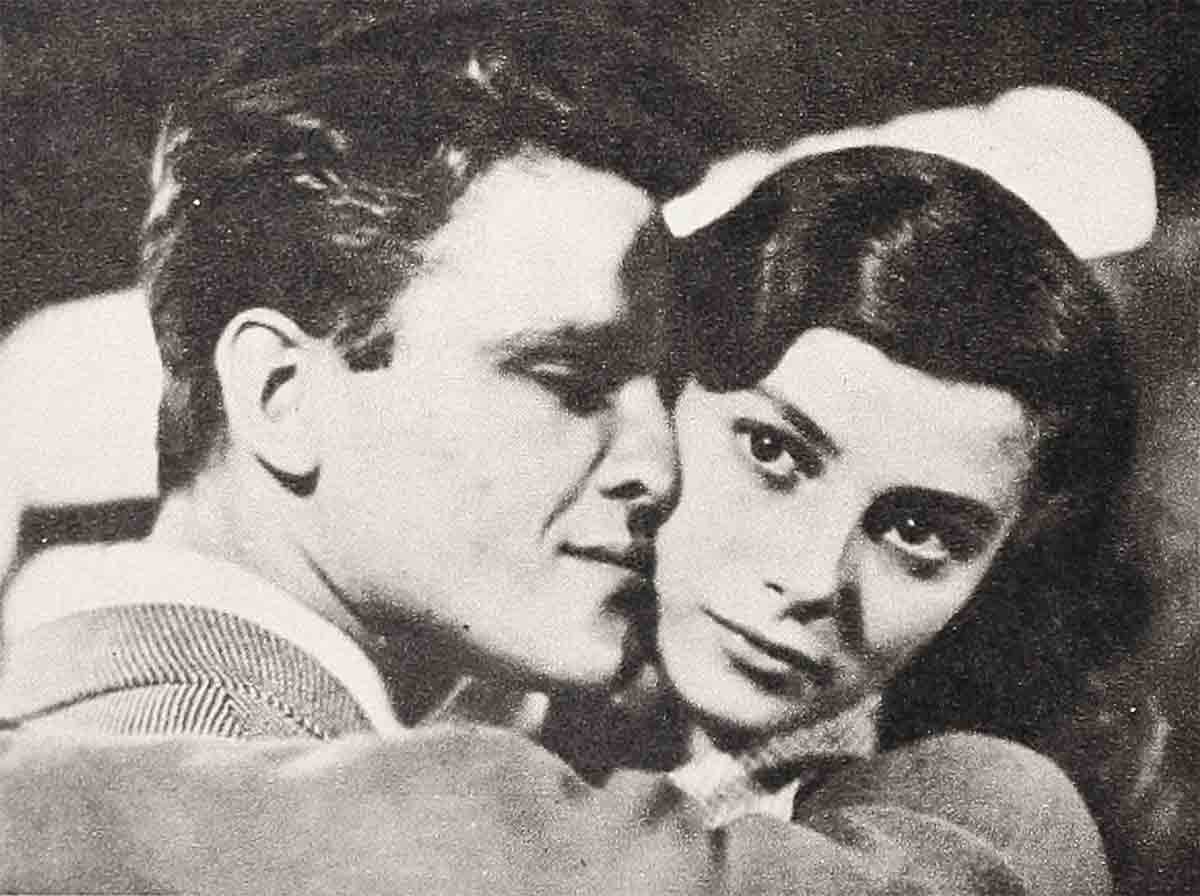
Her next leading man was John Ericson, who played opposite her in “Teresa.”
He was friendly, cheerful, uninhibited. In his company she felt relaxed, could giggle or be serious.
When they first met, Pier knew no English. She still remembers the day he brought her a box of candy. She was embarrassed because she didn’t know how to thank him in English. He didn’t give her a chance to stay embarrassed very long.
By application and demonstration, John quickly taught her the most essential phrases. “We are walking . . .” he said as they went into the studio. “Walking . . .”
The two had fun working together, being together. For the first time in her life, Pier felt like having the brother she had always missed.
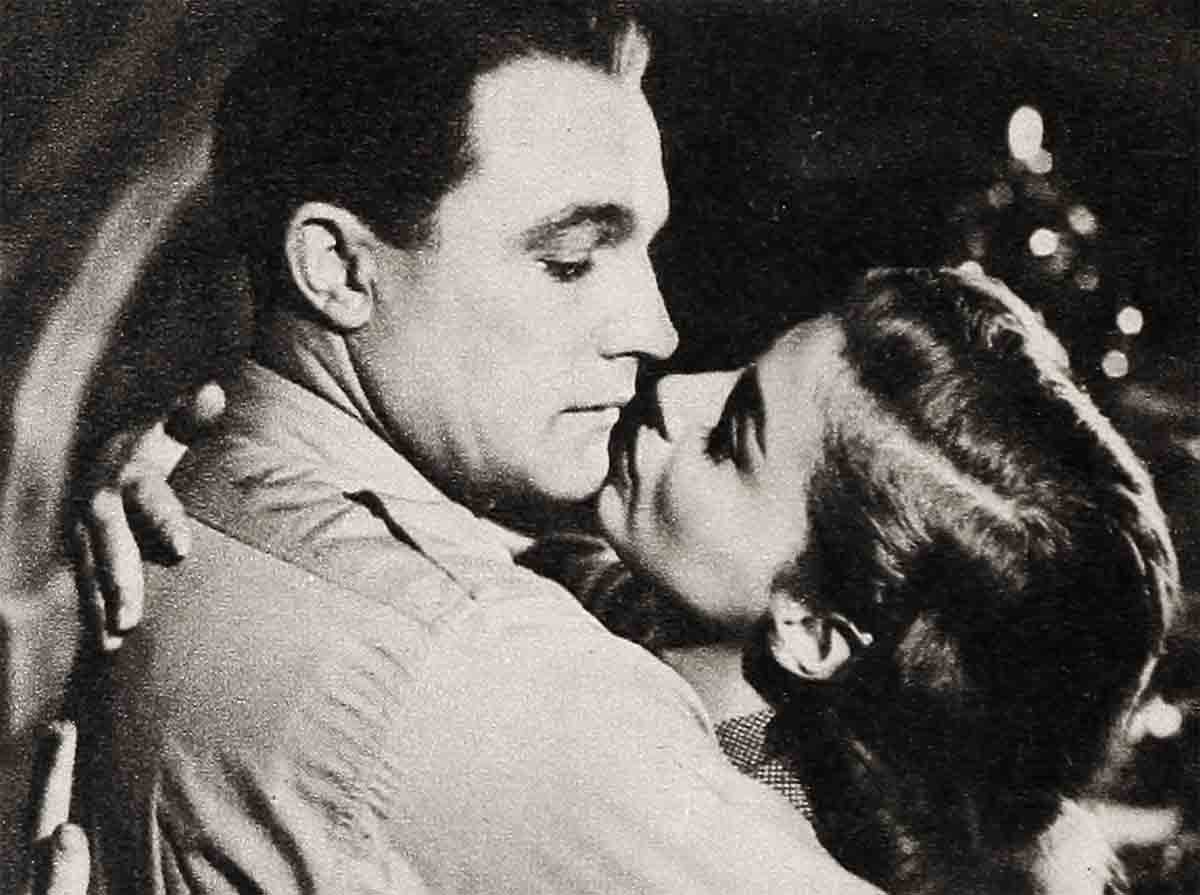
When MGM cast her in “The Light Touch,” Stewart Granger was the next man in her professional life.
Still a relative newcomer, the thought of working with an actor with the standing of Granger at first made Pier feel uneasy, awed, as unsure of herself as during her first picture. But Mr. Granger proved an understanding, down-to-earth sort of fellow who quickly managed to make her feel confident and at ease.
Her next leading man, however, had her in tears again!
Gene Kelly starred opposite her in “The Devil Makes Three,” which was filmed in Germany. Gene was charming, pleasant, affable. Together with the others of the cast, they went dancing almost every night. They had a wonderful time.
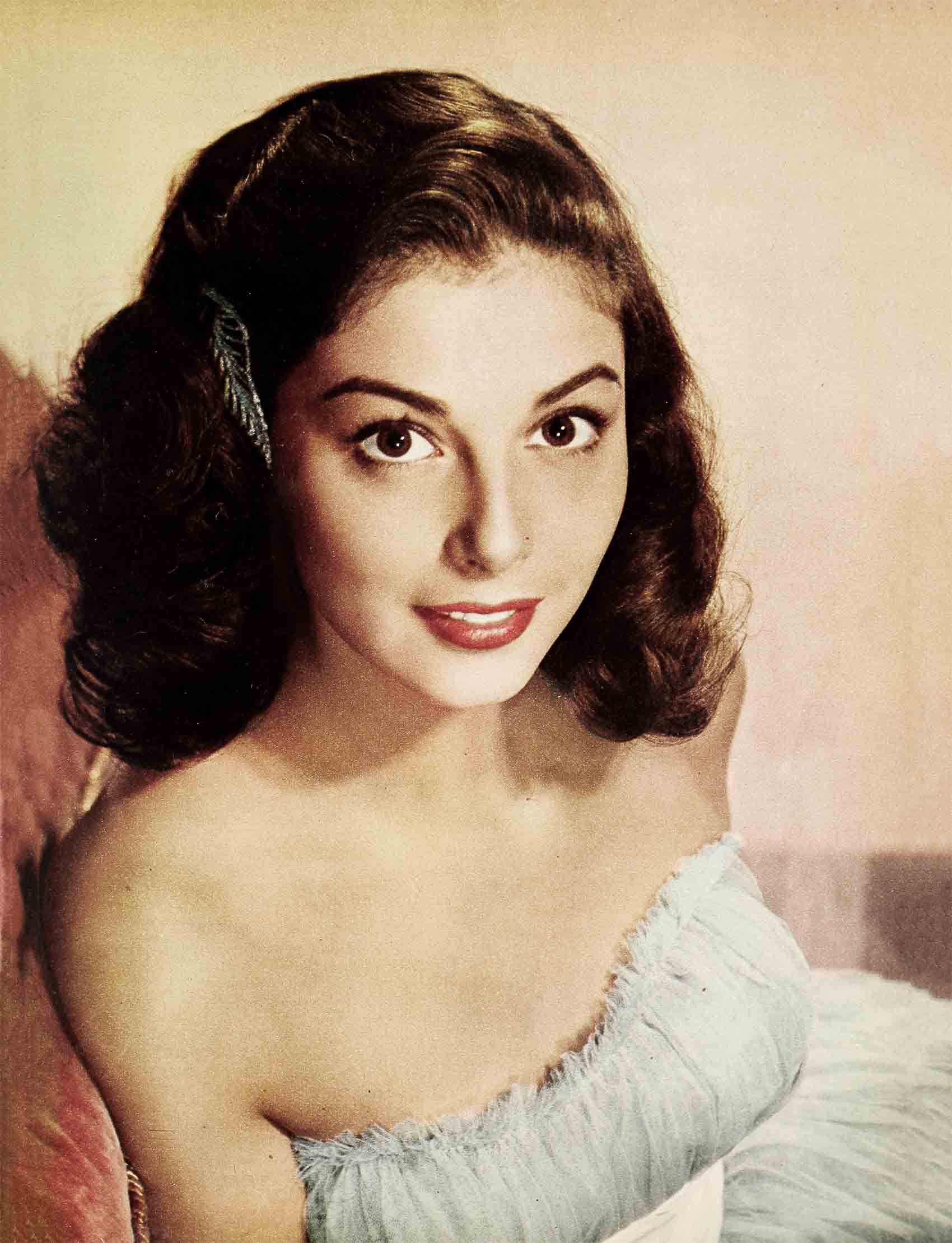
In front of the cameras, Gene is a perfectionist, and not just about: his own performance. For that reason he likes to help his co-stars in every possible way, so much so that Pier thinks he’s one of the most outstanding persons she’s ever met.
The picture was half finished when they came to their first love scene. From habit, Pier looked down, instead of at him—as the script called for and as he had expected her to do. “Why don’t you look at me as you’re supposed to . . .” Gene snapped so harshly that Pier broke into tears and fled to her dressing room. She cried for two hours, till she heard a knock on the door.
It was Gene, his voice soft and gentle. “Annie Roonie . . .” (He called her Annie Roonie because of the way she wears her hair.)
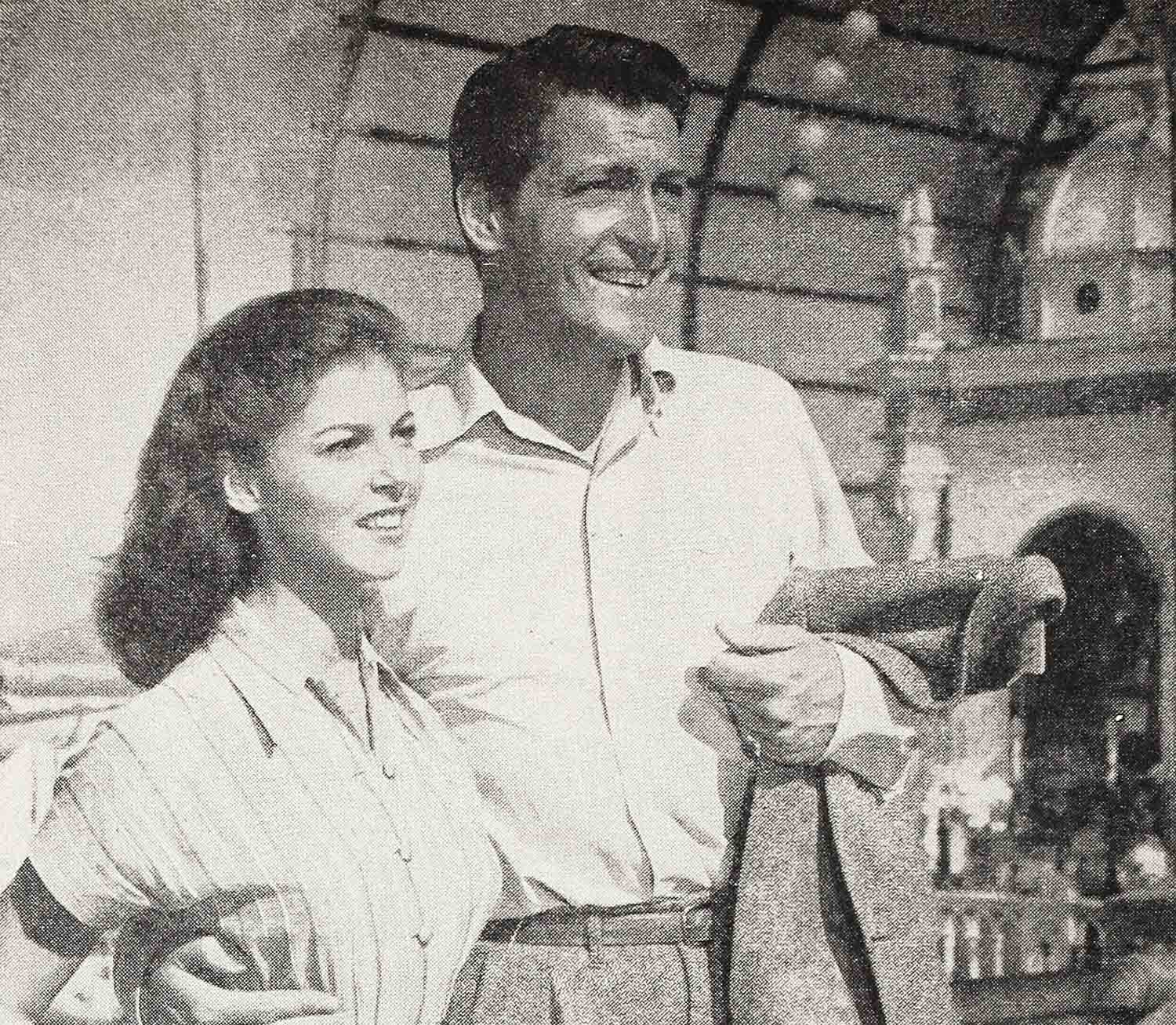
“. . . Yes . . .”
“Mind if I come in?”
“. . . All right . . .”
Half seriously, half comically, yet full of humility, Gene went on his knees. “Annie Reonie, won’t you please forgive me?” And he explained why he’d been so upset.
How could she help it? After that they got along even better than before.
And then came Kirk Douglas.
Kirk proved to be a wonderful person to work with. To rehearse their scenes ahead of time, he met Pier at seven every morning, though they didn’t have to report to the studio till eight. He helped her in every possible way with the script, diction, and trapeze work. (A born athlete, he quickly mastered it like a professional.)
To show her gratitude, she taught him a few words of Italian, but not enough to compose the note she received during the scene when he delivered a letter supposedly from her husband. Instead of the note the prop man had prepared, Kirk had written just one word on the slip of paper which he handed her, “Carina”—which means “You’re so nice.”
When the picture was over Kirk gave her a little golden charm showing two figures—Pier and himself—swinging on a trapeze. She has always cherished it in memory of their wonderful association—an association which, through publicity and gossip columns, grew to the proportions of an earth-shattering romance. True it was that Kirk and Pier were good friends. They saw each other in Europe last year when both were picture-making there. But on her return to Hollywood, when Pier was asked if her romance with Kirk was over, she replied. “It never began.”
Of Ricardo Montalban, Pier’s leading man in “Sombrero,” she says, “Oh, he’s so much fun! We never had a dull moment . . .”
They were in Mexico on location together, and Ricardo’s knowledge of the country and people made this one of the most fascinating trips she has ever taken.
Most actors, due to their emotional work, are temperamental, moody, unsettled. Not Ricardo. Nothing, absolutely nothing, could ever upset his perpetual good mood. He showed Pier how a person can get along with others under any condition.
Her most recent leading man is Carlos Thompson, with whom she co-starred in “The Flame And The Flesh.” Pier was impressed by Carlos’ South American charm and manners and his worldliness. He is entirely different from anyone she has worked with before. But at the same time, he and Pier have much in common—similar backgrounds, upbringing, a natural love for acting, for creative things, for beauty. While they worked together, Pier became very much interested in a book Carlos had written, and which he hopes to have published soon.
No doubt, in his way Carlos will have an influence on her life, as, indeed, had all her leading men.
THE END
—BY PEER OPPENHEIMER
It is a quote. SCREENLAND MAGAZINE MAY 1954




